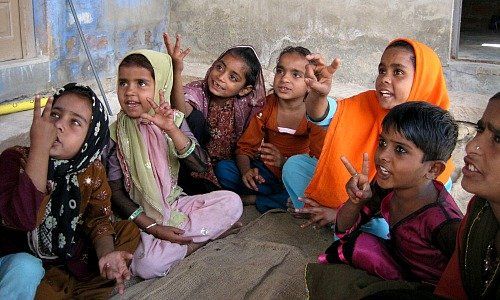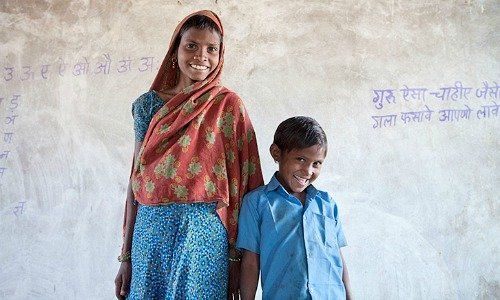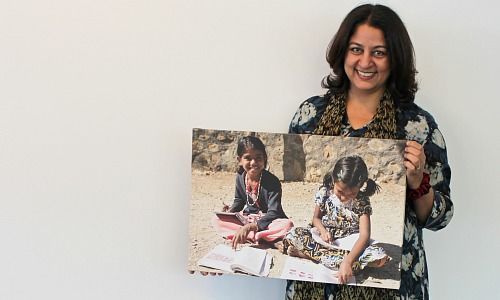Educate Girls: Equal Opportunities
Educate Girls has been a portfolio organization of LGT Venture Philanthropy since 2008. The organization aims to get Indian girls into schools and thus helps overcome discrimination in this country.
LGT Venture Philanthropy provides worldwide support – in the form of donations – to social organizations and businesses that offer an effective solution to a social or environmental problem. Just as important as the financial assistance are the transfer of knowledge and access to networks. One of the supported organizations is Educate Girls, founded in 2007 by Safeena Husain.

Safeena, what gave you the idea to set up Educate Girls?
Starting up the NGO Educate Girls wasn’t really an idea. It was more of a response to a question that I’ve been grappling with for many years: How can we create equality in society? How can we close the major gap between girls and boys, and between men and women that exists in India?
«I firmly believe that education can balance out this inequality in our world»
The answer was simple: by ensuring that all girls go to school and have the chance to get an education and make progress in their lives. I firmly believe that education can balance out this inequality. Education gives a person the knowledge and skills they need to influence and improve the personal, social, financial and political aspects of their lives.
How can education contribute to overcome traditional role models?
We strongly believe that girls in educationally disadvantaged regions who are going to school now will have the potential to get involved in the economy, gain employment and lift their families out of poverty in the future.
«We want to make all children better educated»
Our vision is quite simple really: We want to ensure that we reach the most deprived communities in India, find every single girl who doesn’t go to school and make sure that she can learn. And that’s not all. We want to make all children better educated – whether they are girls or boys.
What would you like to achieve in the medium to long term?
The model of EG is effective, because it can easily be applied to other communities or regions. Since 2007, Educate Girls has grown from a pilot project with 500 schools in a single region into an organization that has over 12,000 schools spread across 8,000 villages in ten regions.
«We are ideally placed to achieve this goal»
By 2018, Educate Girls aims to give around 2.8 million children a year the oppor¬tunity to receive a good education. We are ideally placed to achieve this goal. Our long-term objective in doing this is to bridge the gender gap in our country.
Safeena Husain, born in Delhi (India), studied in London and worked in IT in Silicon Valley. Amongst other ventures, she spent seven years as executive director of a NGO in the U.S. and worked on various development projects in Ecuador, Mexico, Bolivia and South Africa.
Educate Girls

Although they are still children, they are not allowed to go to school. Instead they have to help out around the house or in the fields, looking after their siblings or tending to the animals. Up to 42 percent of children in Indian’s poorest states do not go to school.
This is not because they are poor but because the quality of education and the infrastructure in terms of schools are abysmal and many parents do not see any point in their children receiving a bad education. Mainly girls are affected as many people believe it would be pointless to educate them since they are married off early and are then expected to fulfill their roles as housewives and mothers.
From Village to Village
Educate Girls wants to change this. «Education is the most important weapon you need to change the world,» claims Safeena Husain, founder and executive director of Educate Girls, sounding suitably convinced.
Her social organization aims to get Indian girls into schools and she is working closely with the government and state schools to achieve this. That is why nearly 2,000 volunteers go from village to village, door to door.
Upgrade Local Schools
They look for girls who do not go to school and talk one-to-one with parents and village leaders to try and persuade them of the advantages a good education could have for their daughters. The helpers also support the village communities in applying for funds so they can upgrade local schools. They train teachers in creative teaching methods as well to help improve the quality of education.







